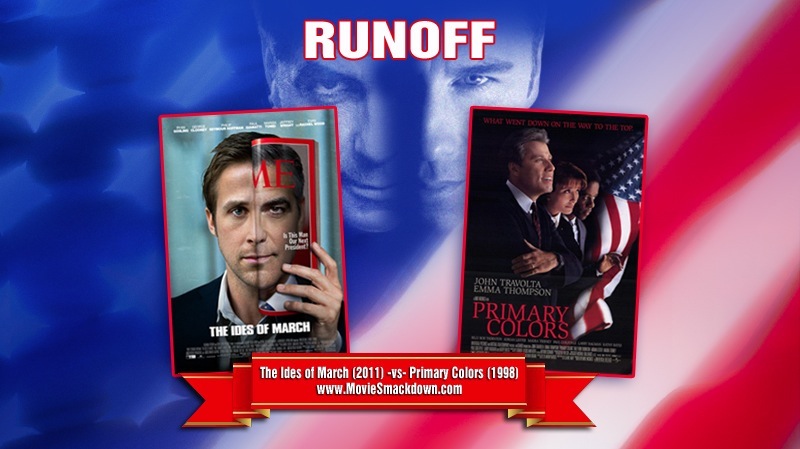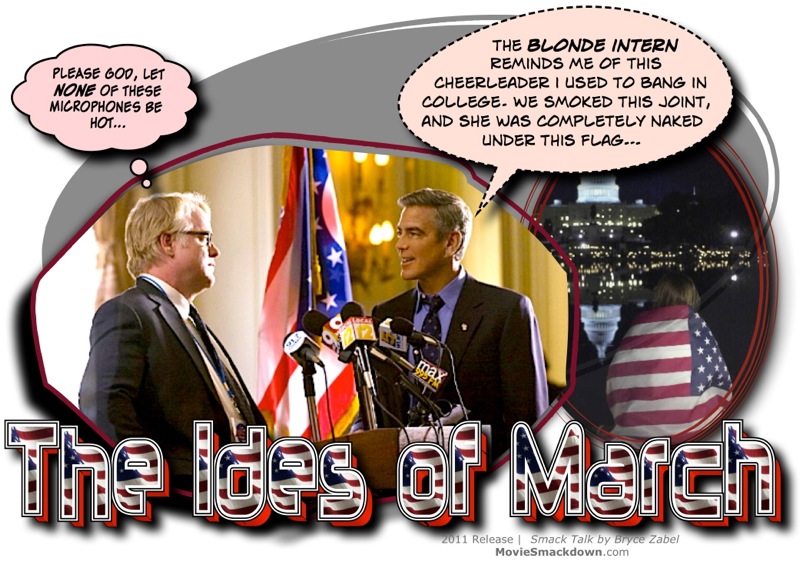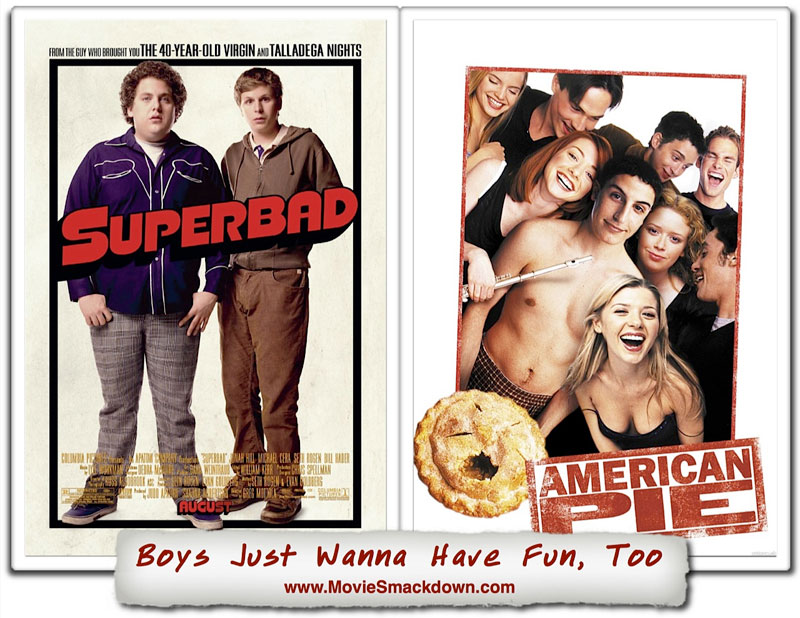
The Smackdown
Here are a couple of movies that dare to suggest that certain Democratic presidential candidates must often struggle to keep it in their pants. We have our share of real life examples from JFK to Hart to Clinton and Edwards. But even in the movies, that’s always been their weak spot, too.
The list of more-than-decent films about political campaigns is a short one. Nobody will ever forget Henry Fonda and Cliff Robertson in The Best Man or even The Candidate with the Kennedyesque Robert Redford. During the Years of Lewinsky, Primary Colors took us into the thinly disguised 1992 Clinton campaign. Now we have The Ides of March, proudly wearing its cynicism on its sleeve at a time when Obama gets pilloried for being practical. In the most recent films, the candidates have that zipper problem we mentioned earlier. (Redford is famously remembered in The Candidate as muttering, after winning, “What do we do now?” but there’s also a quick moment of a campaign worker leaving his room in the morning earlier in the film.)
The Challenger
The Ides of March (2011) is directed by, co-written by and stars George Clooney as Pennsylvania Governor Mike Morris, a leading Democratic presidential candidate, on the eve of a crucial Ohio primary election. His main men are the campaign manager played by Philip Seymour Hoffman and the press secretary played by the now-ubiquitous Ryan Gosling. The thing is, “something” is going to come out and it could change the course of the primary, which will change who will be president, which could change the world. Then “something worse” happens, even more challenging. So, under those conditions, what are the rules? Or are there any?
Like the Obama campaign of 2008 coming down to a duel with Hillary Clinton, this one pits Clooney’s Morris against a right-of-center Democrat in the battle at the OK Corral that Ohio has become. Each side knows things the other doesn’t. And, in the middle of it, is Ryan Gosling’s Stephen Meyers who is more and less than he appears.
The Defending Champion
Although John Kennedy may have had a far more randy life in the White House than Bill Clinton, it was the boy-governor from Arkansas who got caught, over and over, and yet pretty much got away with it. The book version of Primary Colors, originally by Anonymous (later outed as Joe Klein), took pretty sharp aim at the ’92 Clinton march and, with impeachment looming, became a firecracker of a political film six years later. John Travolta and Emma Thompson gave life to the Bill and Hillary roles. And a sensational Billy Bob Thornton did a damn fine impression of James Carville.

It’s the story of the Democratic presidential campaign of 1992 seen through a “the names have been changed” filter to create plausible deniability. We get it all here: the “Comeback Kid” from New Hampshire, the ups-and-downs of the primaries, playing hard hardball with the other side while maintaining an “aw shucks” warmth to the voters. The point — as is so often the case with movies about politics — is to show that politics can be a dirty cynical mess that changes good guys into the same old, same old by wearing them down and compromising their beliefs one ethic at a time.
The Scorecard
The Ides of March wants to tell a made-up story and feel very real while Primary Colors wants to tell a real story by making it feel bigger than life and made up for dramatic effect.
Both of these films teem with great acting talent. As the lead politicians, Clooney’s candidate feels coolly authentic, a nice enough guy in the center of a story, while Travolta’s Clinton feels like an impression more than a performance, which only reminds you that he is not Bill Clinton. Points to The Ides of March and its bravura performance from Ryan Gosling and a powerful bench with Paul Giamatti and Philip Seymour Hoffman, playing rival campaign managers.
Clooney’s direction of The Ides of March is as cool as he is on camera: restrained, classy, clean. This is his fourth directorial effort and his best yet, by far. Mike Nichols, working from an Elaine May script in Primary Colors, though, threw away the restraint, drawing inspiration from the Clinton campaign’s less-polished authenticity. There’s a lot more yelling and colorful disagreement in the older film than there is in this noirish upstart.
It’s really a tone question. Let’s say that you already know that powerful politicians cheat on their wives and their constituents and you aren’t looking for politically correct revelations, just a good story, well told. That’s still tough but that’s where we find the daylight to declare a winner.
The Decision
Primary Colors is a good film and punctuated by moments of positive greatness but never while watching it do you forget these are actors playing real people who you keep imagining in your head. And you also find yourself constantly wondering what part is real and what part is made up. It takes you out of its story through no fault of its own: It just goes with the territory.
On the other hand, The Ides of March is free of that mind-game. It works like a regular movie by introducing characters and letting you get to know them, then care for them and finally let them take you on a ride. It starts off slowly, with Clooney letting you take your time to get to know the players and the game and then, later than you would imagine, with the hook set, he yanks on the pole. No, not that pole. Get your minds out of the gutter.
The Ides of March, our winner, is imperfect but still whip-smart and beautifully rendered. You should really see it if you get the chance. Unless you live in a primary state because, in that case, you may want to pace yourself.






We are in complete agreement today. When does that ever happen in politics, or even in movie making for that matter?
Primary colors! Great movie! I would vote for Johnny. Great actor, handsome, charming man.
Haven’t seen IDES, but I thought COLORS was one of the best political movies of the 90s. You’re setting the bar pretty high here, Bryce!